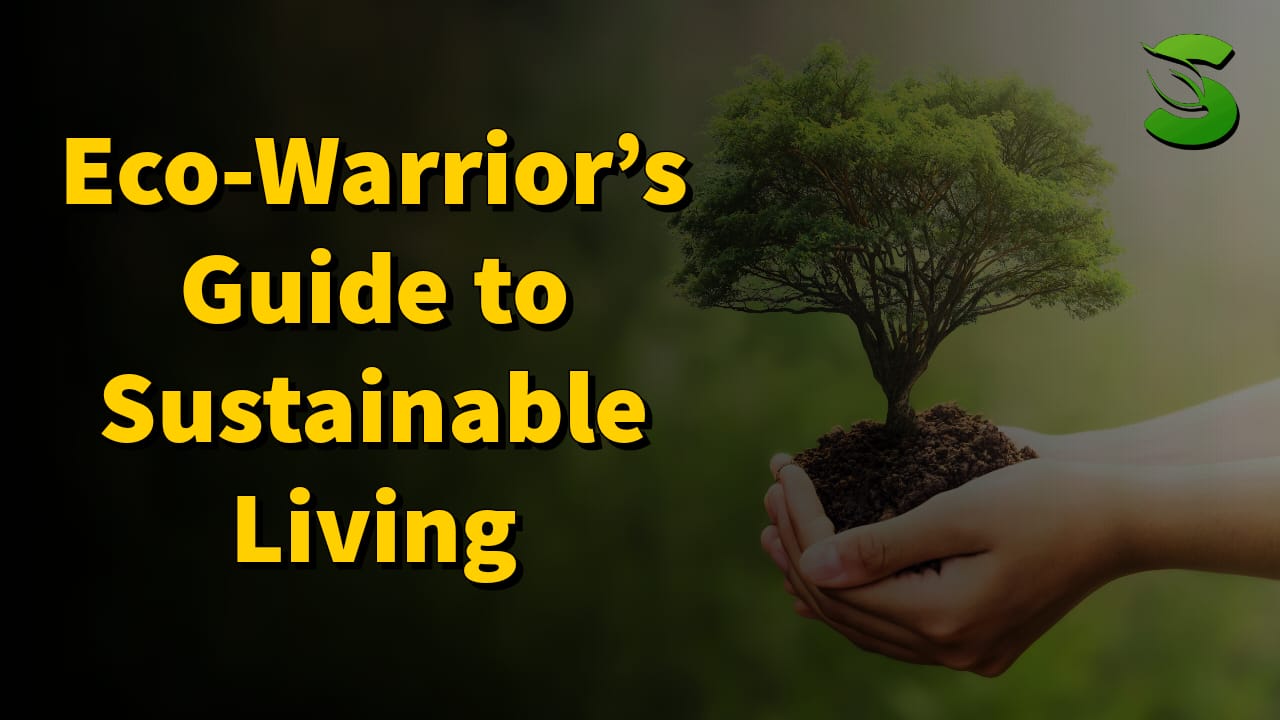In a world where environmental consciousness is paramount, being an eco-warrior is not just a choice; it’s a responsibility. The “Eco-Warrior’s Guide to Sustainable Living” is your compass for navigating the seas of green living. We’ll embark on a journey, unraveling the secrets of eco-friendly practices, from sustainable consumption to conscious waste management.
Eco-Friendly Living: A Way of Life
Living sustainably isn’t just a trend; it’s a lifestyle choice. It encompasses every aspect of our lives, from the food we eat to the products we use. To embark on this green journey, we need a roadmap with actionable steps.
Transitioning to a sustainable lifestyle requires a commitment to minimizing your environmental footprint. It’s about creating a harmonious coexistence between us and the planet.
Sustainable Consumption: Less is More
Sustainable consumption involves making thoughtful choices about what we buy. It means prioritizing quality over quantity, opting for products that are built to last, and supporting companies with strong eco-credentials.
By making mindful decisions when it comes to consumption, you not only reduce waste but also promote ethical practices among businesses.
The Three R’s: Reduce, Reuse, Recycle
The famous mantra of “Reduce, Reuse, Recycle” has been ingrained in our minds for years. But how can we put this into practice effectively?
- Reduce: Start by decluttering your life. Only purchase what you truly need, and choose products with minimal packaging.
- Reuse: Before discarding items, consider their potential for reuse. Old jars can become storage containers, and worn-out clothes can be upcycled into new fashion statements.
- Recycle: Recycling conserves resources and reduces landfill waste. Familiarize yourself with your local recycling program and ensure you’re doing it right.
Energy Conservation: Powering Down for a Greener Future
Energy conservation plays a crucial role in sustainable living. Small changes in your energy consumption can lead to significant benefits for the environment and your wallet.
- Switch to LED Lights: LED bulbs use less energy and last longer than traditional incandescent bulbs.
- Unplug and Turn Off: Don’t leave appliances and electronics on standby. Unplug chargers when not in use, and turn off lights when leaving a room.
- Opt for Renewable Energy: If available, consider switching to renewable energy sources like solar or wind power.
Conscious Waste Management: Trash Talk
Waste management is a critical aspect of sustainable living. The key is to reduce waste and manage it responsibly.
- Composting: Turn your kitchen scraps and yard waste into nutrient-rich compost for your garden.
- Reduce Single-Use Plastics: Say no to plastic bags, straws, and disposable cutlery.
- Donate and Repurpose: Instead of tossing out items you no longer need, donate them to charity or find creative ways to repurpose them.
Sustainable Transportation: Greener Commutes
Our daily commute has a substantial impact on our carbon footprint. Consider these sustainable transportation options:
- Carpooling: Share rides with others to reduce the number of vehicles on the road.
- Public Transport: Utilize buses, trams, and trains to minimize emissions.
- Cycling and Walking: If feasible, bike or walk for short distances to reduce your carbon footprint.
FAQs
Q: How can I start living sustainably?
A: Begin by making small changes in your daily life, such as reducing waste, conserving energy, and opting for sustainable products.
Q: Is sustainable living expensive?
A: Not necessarily. While some eco-friendly products may be pricier upfront, they often save you money in the long run by being more durable and energy-efficient.
Q: Can sustainable living really make a difference?
A: Absolutely! Each eco-warrior’s efforts contribute to a greener planet. When collectively practiced, sustainable living can have a significant positive impact on the environment.
Q: What are some easy ways to conserve energy at home?
A: Unplug devices not in use, switch to energy-efficient appliances, and properly insulate your home to reduce heating and cooling costs.
Q: How can I encourage my community to adopt sustainable practices?
A: Lead by example and engage in community events that promote sustainability. Educate your neighbors about the benefits of green living.
Q: What is the importance of composting in waste management?
A: Composting reduces the amount of organic waste in landfills and produces nutrient-rich soil that enhances plant growth.
Conclusion
The Eco-Warrior’s Guide to Sustainable Living is a journey toward a more eco-conscious and responsible way of life. By adopting sustainable consumption, conserving energy, managing waste, and making greener transportation choices, you can play a vital role in preserving the planet for future generations. Join the green movement, make a positive change, and become an eco-warrior today!







